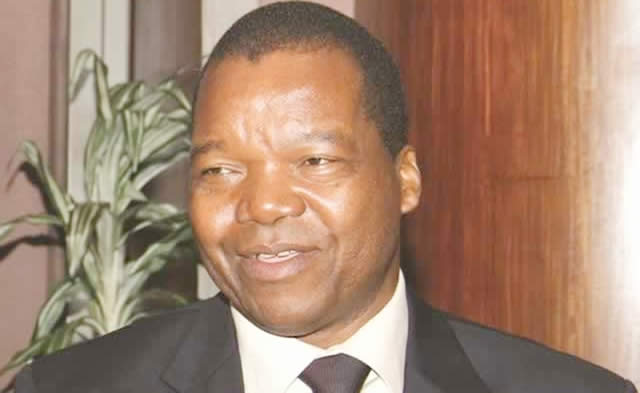Editorial Comment: Policy sets tone for economic recovery

ON Monday, Reserve Bank of Zimbabwe Governor Dr John Mangudya set the tone for the economic recovery of the country when he unveiled his maiden Monetary Policy Statement under the theme, “Back to Basics” in which he critically analysed the causes and effects of the economic challenges bedevilling Zimbabwe and proffered a number of measures to ameliorate the situation.
He announced a number of financial sector policies aimed at rescuing and strengthening the banking sector which has been reeling under serious liquidity challenges. With effect from Monday, individuals will be allowed to take outside Zimbabwe a maximum of $5,000 down from $10,000.
Officially, this was done to comply with international money laundering measures but the move will significantly reduce the amount of cash exiting the country.
Dr Mangudya also unveiled a three tier system for banks’ minimum capital requirements and under tier 1, which will comprise large indigenous commercial banks and all foreign banks, the minimum capital requirement currently at $25 million would rise to $100 million. Under tier 2, minimum capital requirements will remain at $25 million until 2020 for the rest of the commercial banks, merchant banks, development banks and finance and discount houses. Tier 3 will apply to deposit taking micro finance banks with a required capital level of $7,5 million by 2020 from the current $5 million.
We feel this is a reasonable proposal as it will afford the institutions time to comply as the economy improves while freeing smaller entities from the obligations of bigger ones. As at June 30, 2014, a total of 14 out of 19 operating banking institutions (excluding POSB) were in compliance with the prescribed minimum capital requirements with four banks — Metbank, Allied Bank, Tetrad and AfrAsia facing liquidity challenges. On aggregate, core capital for the banking sector amounted to $753,09 million as at 30 June 2014. However, the level of non-performing loans had risen to 18,5 percent as at June 2014 from 15,9 percent in December last year. To that effect the RBZ proposed the establishment of a national special purpose vehicle called the Zimbabwe Asset Management Company (ZAMCO) to address the toxic assets bedevilling the sector. ZAMCO will be funded by a combination of non-funded lines of credit, new inflows, long-term bonds and treasury bills.
NPLs in an amount of $45 million have already been acquired by ZAMCO from three banks as at 15 August 2014. The Central Bank will also establish a credit reference bureau for effective financial information-sharing to minimise credit risk financial institutions continue to face. On bank charges, Dr Mangudya said the Central Bank, in consultation with the Bankers Association of Zimbabwe, had formed a forum that would meet on a quarterly basis to review bank charges, interest rates and credit reference system. The forum replaces the MoU that used to be there between BAZ and the RBZ to address similar issues.
We urge the forum to be proactive in responding to the needs of depositors who have endured high bank charges compared to those in the region since dollarisation. Dr Mangudya also unveiled measures to buttress the multiple currency system as clearly spelt out in Zim-Asset. The Central Bank will import rand coins and special coins whose value is at par with the US cents to alleviate the lack of change within the economy.
“We will also mobilise financial resources to support the economy through enhancing gold production and for the lender of last resort function,” the RBZ chief said.
We welcome the importation of coins because it will go a long way in addressing price distortions in the economy. We also strongly call on the RBZ to review the gold price to align it with international prices to stem the problem of leakages and smuggling of the precious metal to other countries.
The Central Bank also announced that the interbank market supported by Afreximbank would commence between the end of August and mid-September. The RBZ has also provided amnesty to previous offenders of the Exchange Control Policy to trade market discipline and self-regulation.
“This is necessary to ensure that going forward market participants start on a clean slate and that going forward the bank shall be imposing penalties for non-compliance with policy,” the RBZ chief said.
Dr Mangudya also reviewed the threshold of offshore loans to be approved at the banks’ level to $7,5 million from $1 million and the Consolidation and Streamlining of the External Loans Co-ordination Committee and the Exchange Control Review Committee to enhance efficiency. With Zimbabwe grappling with liquidity crunch resulting from low foreign direct investment, subdued exports and the country’s inability to attract lines of credit from bilateral and multilateral financial institutions, we feel the monetary policy sets the right tone for stimulating economic revival. The whole country needs to support these interventions by the central bank if they are to be successfully implemented.










Comments